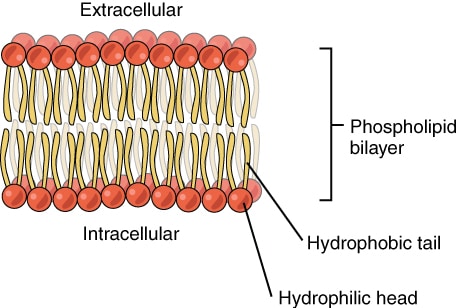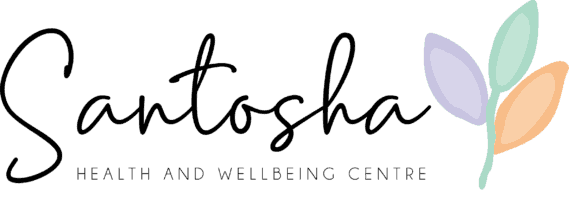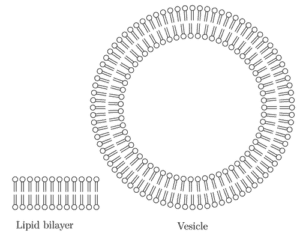A bit of science to start:
Each one of the cells that makes up your body has a membrane, that separates its insides from its outsides. Just like your skin. The fancy name for this membrane is the “Phospholipid bi-layer” or “Lipid bilayer”. This means two layers (bilayer) of fat (lipid). This is what keeps the innards in and outside stuff out.
This is why fat in our diet is essential. Each of our cells; brain cells (most importantly), skin cells, stomach lining cells, blood vessel cells, everything, is made of this. Without these fats, we don’t have enough building blocks for our membranes.
Bring in the metaphors
Imagine you’re building a house. The pallets of bricks have arrived. They all look the same. But there is one dodgy pallet. A cheap and nasty variety that has bricks that are an uneven size and shape, completely different to the other pallets. Would you build your house with them? Or send them back and get the same good quality bricks?
What about working on a team project? Everyone has the same idea, everyone is working cooperatively to hold the project together. Then there’s this one person. One person who doesn’t want to fit with the team, who wants to be different, who wants to hold their own shape. Don’t get me wrong, being unique is great. But sometimes we just need to fit in.
This non-team-player and those dodgy bricks, they are the trans fats of our cells. They let the whole process down with their poor quality, non-conformist shape.
How this affects your health
Transfats are a different shape to the healthy “phospholipids” that make up the bilayer that holds our cells together. Transfats straighten out due to the heat they are subjected to during processing. Healthy phospholipids are wiggly. The straight transfats make the membrane of the cell rigid. When they replace too many fat molecules in our cells, the cells become more like ping pong balls, holding their shape. They are stiff and rigid and not conducive to good health.
This is quite different to the normal and healthy fat molecules that make up our cells. They have wiggly tails and this makes our cells fluid and supple and they are able to conform to the shape they need to be. They are like bubbles in the bath.
The trouble is, our body doesn’t know the difference between the good quality and the bad quality. Our bodies are amazingly clever, but not so much in this case.These rigid-cell-forming lipids are then integrated into our cells changing the quality of our cell structure and it can’t be trusted to work to its optimum potential.

What do trans fats do? (The big picture)
Trans fats raise your bad (LDL) cholesterol levels, they increase your risk of developing heart disease and they are associated with type II diabetes. They cause inflammation, pain and general poor health.
What to look out for
Companies don’t want you to know their product contains trans fat, or you wouldn’t buy it would you? So trans fats like sugar and MSG are labelled as all sorts of weird and wonderful things. Here is a short list:
- Partially hydrogenated [insert type of oil here] oil
- It may be soybean, coconut, palm, etc.
- Hydrogenated oil
- Shortening
- “Zero trans fats” – most likely a marketing lie that gets stamped on the front of the packet
Things you may buy, that won’t come with labels:
- Any deep fried foods (chips, fish, doughnuts, etc.)
- Baked goods/Bakery foods – cakes, biscuits, pastries, crackers
- Flavoured or buttered popcorn
- Margarine (comes with a label but should not be sold as ‘food’, probably should be sold at Bunnings as plastic)
In general, this means packaged, processed or fast food.
So you see, it’s not just the fat or sugar that’s in these products, it’s the type of fat that contributes to poor health in a far worse way that some people realise.
Heating oil with a low smoke point such as olive oil turns those oils into trans-fats too. Plant based oils such as olive, avocado, macadamia or hemp, should only be used fresh on salads or poured in after food has been taken off the heat.
How to avoid trans fats
Like any dietary advice, focussing on real, unprocessed, fresh foods is your best option. This includes fresh fruit and vegetables, nuts and seeds, well-sourced meats and lots of filtered water.
If you must enter a bakery, fresher options such as a salad roll will be better for you. Just make sure you skip on the margarine. All fast foods chain stores are loaded with trans fats, so let’s be honest, it should only be a rare occurrence, if at all.
When doing the grocery shopping, avoiding supermarkets as much as possible helps. Meat from the butcher, fruit and veg from the local fruit and veg shop.
Snacks are a big source of trans-fat containing foods, so planning ahead with healthier snack options helps:
- Vegetable sticks and home made dips
- Bliss balls
- Nuts, seeds and dried fruit (keep dried fruit minimal as it is high in sugar)
Cooking with oils with a higher smoke point which include:
- Real butter
- Ghee (butter with the milk solids taken out)
- Coconut oil
And using plant based oils such as olive and hemp oil at room temperature only.


